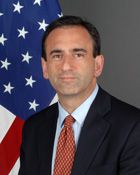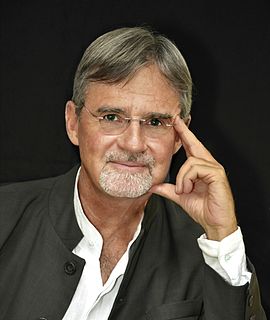A Quote by David Brooks
The thing that should most concern us is a shift in American foreign policy. We have had a bipartisan belief in American foreign policy based on the post-World War II institutions that believed in democratic global world, which Russia and the Soviet Union was often seen as hostile to. And most Republicans and Democrats have always basically believed in this world order. Donald Trump and Vladimir Putin and maybe Marine Le Pen do not agree with this basic structure of the world.
Quote Topics
Agree
Always
American
American Foreign Policy
Based
Basic
Basically
Belief
Believed
Bipartisan
Concern
Democratic
Democrats
Donald
Donald Trump
Foreign
Foreign Policy
Global
Had
Hostile
Institutions
Marine
Maybe
Most
Often
Order
Pen
Policy
Post
Putin
Republicans
Republicans And Democrats
Russia
Seen
Shift
Should
Soviet
Soviet Union
Structure
Thing
This World
Trump
Union
Us
War
Which
World
World Order
World War
World War I
World War II
Related Quotes
Unlike President Obama, I would say that I support the long-standing bipartisan post-war belief that American global strength and leadership secures our national-security interests, and it also promotes order and stability in the world. And it gives us immense influence in the world and deters our adversaries and reassures our allies.
It's important to remember that World War II was experienced very much as a continuity in that sense. Most of World War II in most of Europe wasn't a war; it was an occupation. The war was at the beginning and the end, except in Germany and the Soviet Union, and even there really only at the end. So the rest of time it's an occupation, which in some ways was experienced as an extension of the interwar period. World War II was simply an extreme form, in a whole new key, of the disruption of normal life that began in 1914.
If I were Donald Trump, I would definitely not pick Mitt Romney because it's very easy for Mitt Romney to have have a separate foreign policy operatus in the State Department that would run a dissenting foreign policy from the White House foreign policy. There, I think the populist America-first foreign policy of Donald Trump does run against a potential rival.
When I was on an American show in 2015, I tried to talk about the threat Vladimir Putin posed to the free world. The interviewer said, "Wake me up when he takes over Poland." We heard something similar from years ago and we ended up with World War Two. Putin decided to skip Poland and went straight to Wisconsin. Putin is at war, a hybrid war, with the free world. His domestic propaganda is based entirely on a strong man challenging the free world. When the demonstrations around Russia began, the harsh response was because it was more important to show strength.
Foreign policy always has more force and punch when the nation speaks with one voice. To remain secure, prosperous, and free, the United States must continue to lead. That leadership requires a president and Congress working together to fashion a foreign policy with broad, bipartisan support. A foreign policy of unity is essential if the United States is to promote its values and interests effectively and help to build a safer, freer, and more prosperous world.
Most Americans are close to total ignorance about the world. They are ignorant. That is an unhealthy condition in a country in which foreign policy has to be endorsed by the people if it is to be pursued. And it makes it much more difficult for any president to pursue an intelligent policy that does justice to the complexity of the world.
Most Americans have no memory of the designs Franklin Roosevelt's New Dealers had for postwar-American foreign policy. Human rights, self-determination and an end to European colonization in the developing world, nuclear disarmament, international law, the World Court, the United Nations - these were all ideas of the progressive left.






























